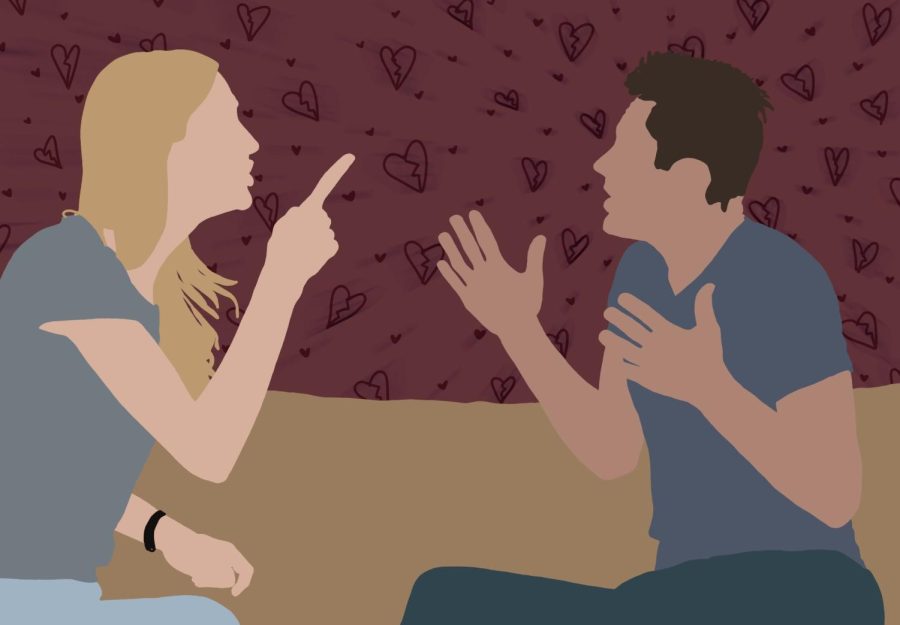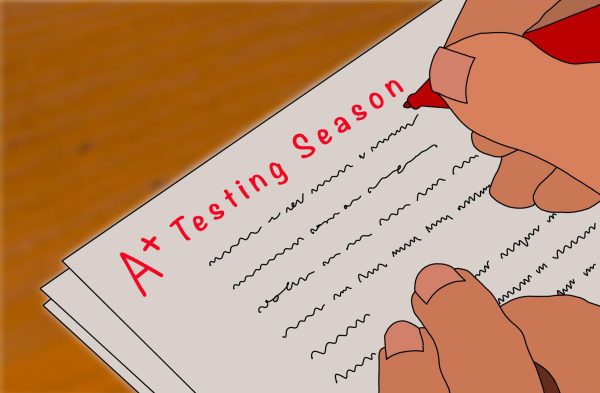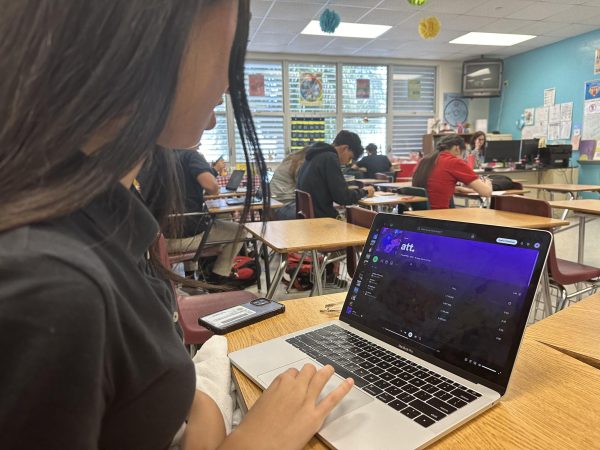Romanticizing Toxic Relationships: Where Did the “Romance” Go?
The media may have a larger role than you think in developing the “romance” genre characterized by toxicity.
Toxicity can exist in any relationship, including those with family, friends, or coworkers. Admittedly, no relationship can be completely tension-free, but toxic is much different than just difficult relationships. These relationships, whether aware or in denial, make individuals feel undervalued, misunderstood, demeaned and even abused. Low self-esteem may even worsen in an already toxic relationship. Along with co-dependency and attachment problems on both sides, every party in a toxic relationship suffers.
“Romanticism in toxic relationships is caused more by lust than love. People tend to fall in love with the potential their partner can have in their relationship rather than the actions they are showing. A toxic relationship does not have to be abusive, meaning verbally or physically, it can also be a relationship where you feel unsupported and/or even misunderstood. Society needs to normalize communication. I feel that sometimes society makes it seem like you speak your mind or your truth, you are doing more damage than good,” senior Faith Diaz said.
Some may neglect self-care practices because they are placed in constant choice between fight, flight or freeze. Hence, relational toxicity can gradually build up to physical health problems as one keeps all their emotions and hurt inside to fester. Therefore, toxic relationships—even indirect ones such as children raised by parents in unhealthy marital relationships —can lead to stress disorders, anxiety, and depression symptoms according to Bryant McGill who is a well-known activist that advocates for the overall wellbeing of people across the globe.
The “romanticization” is a defense mechanism to enable them to gloss over their guilt in staying in a abusive relationship. They observe relatives and friends tolerating such behavior and identify it as being an adult. Most teenagers want desperately to be seen as adults, therefore they mimic behaviors that adults portray. Unfortunately that includes toxic relationships.
— senior Liyeny Castillo
However, in many cases, removing oneself from a toxic relationship can feel much more difficult to break free. The reason behind this as stated by Bejamin Troy a doctor in psychology that studies toxic relationships, is that from an early age, we learn from previous relationships, platonic and romantic alike, we must give up our own needs to serve somebody else. After every sacrifice may come the inauthentic love, making the chaos, unpredictable and suffering feel safe when they are entangled with love. As a result, it can feel very scary to break free from the traumatic chain and turn the page to a foreign yet healthy relationship.
“I personally feel that a lot of media that’s out there these days such as Euphoria, Love Island, Suicide Squad and 365 days makes out toxic relationships as fun and exciting as possible. But in real life, these relationships are terrible situations to be in. The reality of those situations like those is always terrible for one for both of the parties involved and I believe if we struck at the source and portraying them as fun we would improve as a society overall,” senior Edglhys Lopez said.
All love is present in the media, even the dangerous kinds. Some argue that these unhealthy habits are glamorized in unrealistic shows and stories for the purpose of being entertainment for teenagers. What once appeared to be innocent love like passing notes in class, awkwardly holding hands, or dancing in the school gym became cheating, manipulating and mocking.
“We as a society could work on showing that feelings and being vulnerable aren’t bad things, especially when you’re with someone you trust. We should be showing children and teens how to be in healthy, communicative and trusting relationships. This can be done through social media, at home and even in schools,” senior Nicole Gufford said.
Nonetheless, there are resources out there for people that find themselves in this situation. Individuals can call the following number redirecting them to services such as counseling, classes and on extreme situation, legal support. National Dating Abuse Helpline 866-331-9474 /866-331-8453 TTY.
Your donation will support the student journalists of Coral Gables Senior High School. Your contribution will help us cover our annual website hosting costs.

Jacqueline Rodero is a senior in the International Baccalaureate program. This is her second year as a CavsConnect staff writer. As she closes her time...

Sofia Felan is a junior in the International Baccalaureate program at Coral Gables Senior High. This is her second year with CavsTV drawing featured images,...















